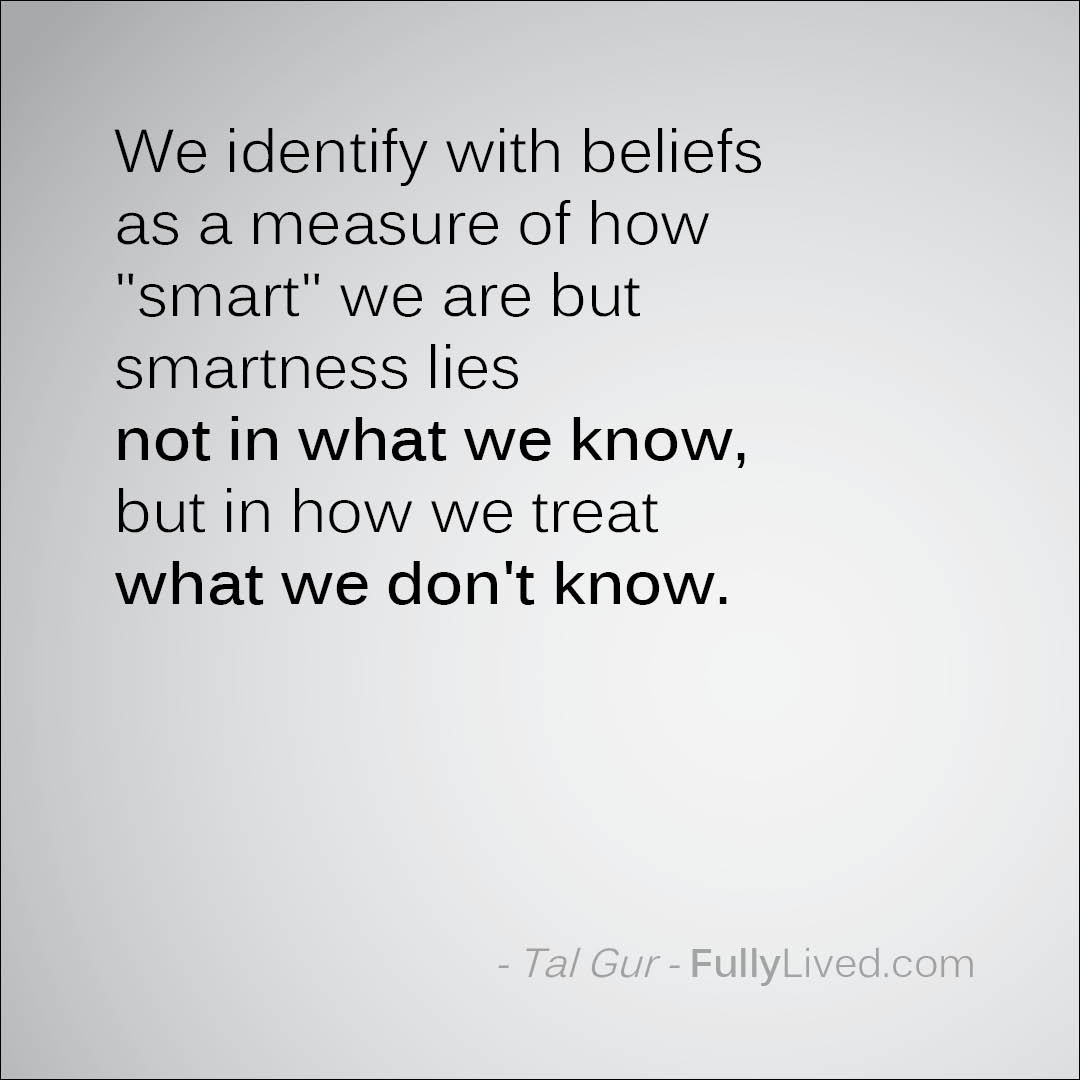We identify with beliefs as a measure of how “smart” we are but smartness lies not in what we know, but in how we treat what we don’t know.
Imagine yourself in a vast library, surrounded by shelves upon shelves of books. Each book represents a belief or a piece of knowledge that you hold dear. You might feel proud of the size of your mental library, thinking it reflects your intelligence. But stop for a moment and consider this: Is intelligence truly measured by the sheer volume of information we possess?
In the hustle and bustle of life, we often equate intelligence with the accumulation of facts, figures, and opinions. We strive to gather as much knowledge as possible, as if adding more books to our mental shelves will make us wiser. However, the true essence of wisdom lies not in the quantity of information but in our attitude towards the unknown.
Picture a gardener tending to a flourishing garden. They don't measure their skill by the number of plants they already know about but by their willingness to learn about new species, new techniques, and new challenges. Similarly, our capacity to embrace the vast expanse of the unknown is a true testament to our intelligence.
Consider the curious child who eagerly explores the world around them, asking questions and seeking answers with unbridled enthusiasm. Their intelligence shines not because they know everything but because they acknowledge their ignorance and actively seek to fill the gaps in their understanding.
Just as a river carves its path through rugged terrain, intelligence flows through the willingness to navigate the uncharted waters of uncertainty. It's not about clinging rigidly to our existing beliefs but about embracing the ever-changing currents of knowledge and adapting our perspectives accordingly.
Imagine a sculptor chiseling away at a block of marble, not to create a perfect statue but to reveal the beauty hidden within. Similarly, our journey towards true intelligence involves chiseling away at the layers of ignorance, prejudice, and preconceived notions that obscure our perception of reality.
The pursuit of knowledge should not be a race to accumulate trophies for display but a journey of self-discovery and growth. Like a skilled sailor navigating stormy seas, true intelligence requires resilience, adaptability, and a humble acknowledgment of our limitations.
Think of intelligence as a compass guiding us through the wilderness of uncertainty. It's not about having all the answers but about knowing which direction to take when faced with the unknown. Just as a compass needle points north, true intelligence points towards humility, curiosity, and a willingness to explore beyond the familiar shores of our comfort zone.
In conclusion, intelligence is not measured by the number of beliefs we hold but by our openness to challenge those beliefs and explore the vast realm of the unknown. Like a bird soaring high above the clouds, true intelligence knows no bounds and thrives on the limitless horizon of possibility.
So, dear reader, I leave you with this question: In your journey towards intelligence, are you merely collecting beliefs or are you embracing the beauty of uncertainty and seeking wisdom in the unknown?
* To gain more inspiration and motivation for your personal growth journey, I recommend visiting my SMART goals page, which offers a wide range of goal ideas to help you establish new aspirations and achieve greater success in life. This list was crucial in the development of my own life goals list, consisting of 100 goals that I pursued for ten years.
Chief Editor
 Tal Gur is an author, founder, and impact-driven entrepreneur at heart. After trading his daily grind for a life of his own daring design, he spent a decade pursuing 100 major life goals around the globe. His journey and most recent book, The Art of Fully Living, has led him to found Elevate Society.
Tal Gur is an author, founder, and impact-driven entrepreneur at heart. After trading his daily grind for a life of his own daring design, he spent a decade pursuing 100 major life goals around the globe. His journey and most recent book, The Art of Fully Living, has led him to found Elevate Society.























